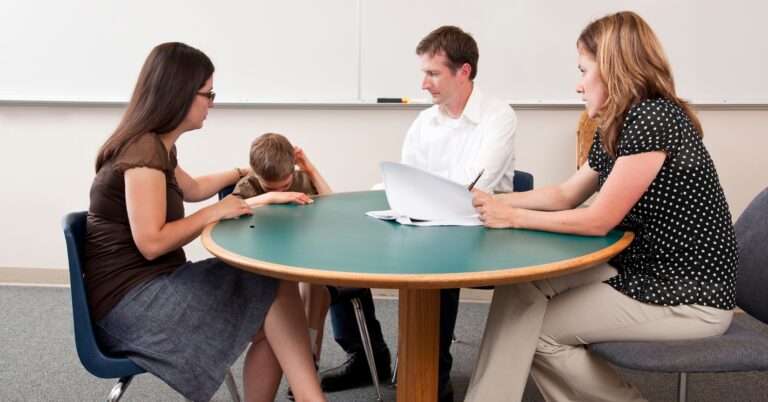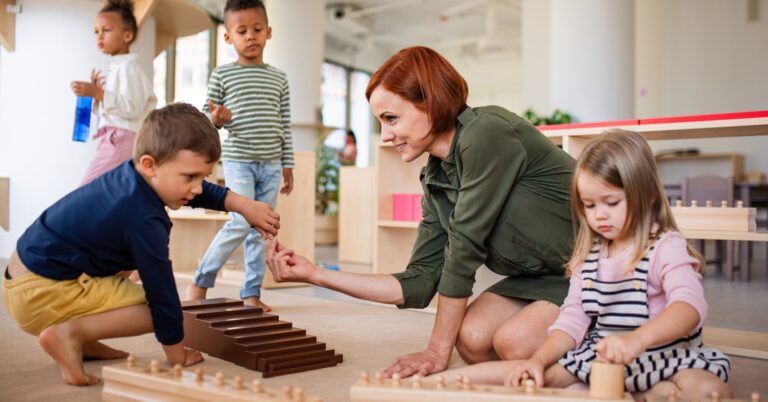Parenting — it’s a rollercoaster ride, to say the least.
It’s filled with joy, surprise, and quite a lot of “I have no idea what I’m doing” moments.
You love your child deeply and want nothing but the best for them, especially when it comes to their self-esteem.
Yet, despite your best intentions, you might be doing things that inadvertently hurt their self-confidence.
In fact, I recently found out that I was guilty of a few of these myself. A humbling moment, to say the least.
So, how can you tell if you’re unintentionally damaging your child’s self-esteem?
There are certain signs that can help us recognize this and in this article, we’re going to discuss 8 of them.
So, buckle up and let’s dive into this together. We’re all here to learn and grow as parents, after all.
1) You’re frequently rushing them
In the hustle and bustle of daily life, it’s easy to find ourselves in a constant rush.
From getting them ready for school to ensuring they finish their homework on time, we often want our children to keep up with our pace.
But here’s something to ponder upon.
When we’re continually rushing our children, we might inadvertently be chipping away at their self-esteem.
How so?
Well, constantly hurrying them conveys a message that they’re not competent enough to manage their tasks within an acceptable timeframe. This can lead to feelings of inadequacy in them.
Moreover, rushing can rob them of the joy of learning and exploring at their own pace, which is crucial for their cognitive and emotional development.
2) You’re not setting clear boundaries
Now, this might sound counterintuitive.
Isn’t giving a child freedom good for their self-esteem?
Yes, and no.
Freedom is essential, but so are boundaries. And here’s why.
Boundaries provide a sense of security to children. They know what’s expected of them and what they can expect from others. It’s kind of like a safety net, providing them with the confidence to explore and grow.
But what happens when these boundaries aren’t clear or consistent?
Well, it creates confusion. And confusion can lead to doubt, which can then chip away at their self-esteem.
Think about it – if a child isn’t sure about what’s acceptable behavior and what isn’t, how can they confidently navigate their interactions?
It’s a tricky balance to strike, but it’s crucial for their emotional well-being. So take a moment to consider, are your boundaries clear and consistent?
3) You’re providing too much praise
Remember when we talked about setting clear boundaries? Well, there’s another aspect to it that often goes unnoticed: the praise we shower on our children.
Yes, praising our children is good. It boosts their morale and encourages them. But like anything, too much of it can have the opposite effect.
Overpraising can create an unrealistic self-image in your child’s mind, making them believe they’re good at everything. This can lead to a significant blow to their self-esteem when they eventually face failure or criticism.
Moreover, excessive praise can also make them dependent on external validation for their self-worth. In the absence of constant approval, they might start doubting their abilities and worth.
So, while it’s important to appreciate your child’s achievements, it’s equally important to ensure that the praise is genuine and proportionate. This helps in fostering a healthy self-esteem that’s based on realistic self-assessment rather than external validation.
4) You’re not encouraging autonomy
Have you ever caught yourself doing things for your child that they could do themselves?
It’s natural. As parents, we often feel the urge to step in and help our children, especially when they’re struggling with something.
But here’s something to consider: By continually stepping in, we might be inhibiting their ability to become self-reliant.
Encouraging autonomy is crucial for a child’s development. When they accomplish tasks independently, it boosts their confidence and fosters a sense of competence.
On the flip side, doing everything for them can send a message that we don’t trust their abilities. This can lead to self-doubt and lower self-esteem.
5) You’re overly critical
Criticism, when constructive, can help children learn and improve. But when it’s constant and harsh, it can be detrimental to their self-esteem.
Here are some common ways we might be overly critical without realizing it:
- Comparing them to others.
- Focusing on their mistakes rather than their efforts.
- Using harsh words or tones even over minor mistakes.
- Not acknowledging their achievements or improvements.
Each of these can subtly convey to your child that they’re not good enough, leading to a negative self-image.
Our words carry weight. It’s crucial to be mindful of the impact our criticism can have on our child’s self-esteem.
6) You’re not actively listening
As parents, we’re often juggling multiple roles and responsibilities. In the midst of all this, it’s easy to forget one fundamental aspect of parenting – active listening.
I recall a time when my child was trying to share something about her day at school, but I was too engrossed in my work emails to really listen. It’s something many of us can relate to, right?
But here’s what we need to remember: By not actively listening, we might be inadvertently making our children feel that their thoughts and feelings aren’t important.
When we genuinely listen, we validate their feelings and experiences.
Making a conscious effort to set aside our phones, switch off the TV, and truly listen when our children speak can make an immense difference to them.
7) You’re not allowing room for failure
I remember the day my daughter took her first steps. As she wobbled and fell, she’d look at me with a mix of fear and determination. My instinct was to rush to her, to catch her before she fell. But I held back.
Why? Because I understood that falling and getting back up was a part of her learning process.
The same principle applies as they grow older.
Failure is an integral part of life. It’s how we learn, adapt, and grow stronger.
If we constantly shield our children from failure or disappointment, we’re not only robbing them of valuable life lessons but also potentially damaging their self-esteem.
When children experience failure, they learn to cope with disappointment and develop resilience. Both of these are valuable traits that contribute significantly to their self-esteem.
8) You’re not nurturing their unique qualities
And here we are at the final, and perhaps the most crucial point.
Every child is unique, with their own set of strengths, interests, and talents. But in a world that often values conformity over individuality, these unique qualities can sometimes get overlooked.
When we fail to recognize and nurture our child’s unique qualities, we might inadvertently be affecting their self-esteem.
It’s like telling a fish to climb a tree. If the fish keeps trying to climb the tree, believing that’s what it should excel at, it will always feel inadequate.
But if the fish is acknowledged and valued for its ability to swim, it will not only excel but also develop a strong sense of self-esteem.
Therefore, let’s put in conscious effort to identify and nurture our child’s unique qualities. It might be their artistic skills, their empathy towards others, their curiosity about space – whatever it is, let’s celebrate it and encourage them to embrace it.
What’s the next step?
Now that we’ve identified some common behaviors that might be hurting our child’s self-esteem, what’s the next step?
- Start with self-reflection: Take a moment to reflect on your behaviors and interactions with your child. Which of these points resonated with you the most?
- Make small changes: You don’t have to overhaul your parenting style overnight. Small, consistent changes can make a huge difference.
- Open up a dialogue: Talk to your child. Understand their feelings and perspectives. Remember, this is about them.
Parenting is a journey, filled with its share of ups and downs. We’re all learning and growing along the way.
You can take this one day at a time, one step at a time. Your efforts today can make a world of difference in nurturing your child’s self-esteem.
It’s not about being perfect. It’s about being there, being aware, and being willing to grow and adapt for the sake of our children’s well-being.
So, what’s your next step going to be?








